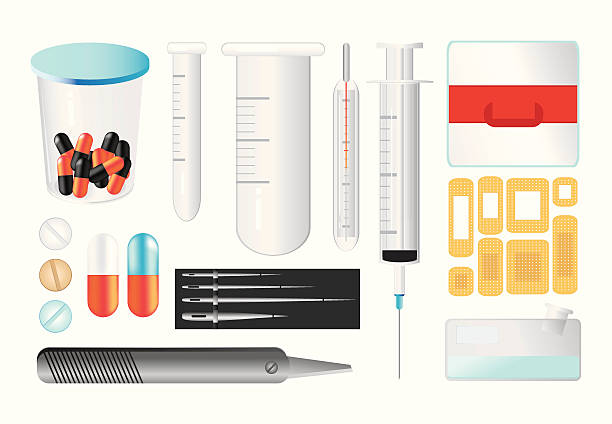Alternative Treatments
Are IV Drips Safe for Everybody?
IV drips, or intravenous treatment, have gained popularity in recent years for a variety of reasons. IV drips have been marketed as a rapid and effective approach to improve general health, ranging from hydration to supplying important vitamins and minerals. However, each medical procedure carries dangers. The issue remains: are IV drips safe for everyone?
While IV drips can benefit some people, they may not be suitable for everyone. Certain medical issues, such as renal or heart illness, might make IV therapy difficult or even dangerous. Furthermore, those who are allergic to specific substances or medications may have negative reactions to IV drips. It is critical to check with a healthcare expert before beginning any medical treatment, including IV therapy.
Despite the possible hazards, IV drips can be a safe and effective technique to enhance hydration while also delivering important vitamins and minerals to the body. However, it is critical to ensure that the person receiving the treatment is a suitable candidate for IV therapy and that the process is carried out by a skilled healthcare practitioner. The safety and efficacy of IV drips, like any other medical treatment, are determined by a multitude of circumstances and should be assessed on an individual case basis.

Understanding IV drips and Their Purpose
Intravenous therapy, or IV therapy, is the process of giving fluids, drugs, and nutrients directly into the bloodstream via a vein. IV drips are a typical type of IV therapy in which a bag of fluids is hung above the patient and attached to a tube that injects the fluids into the vein via a needle or catheter.
What Are IV Drips?
IV drips provide fluids, electrolytes, and nutrients straight into the bloodstream. These fluids can include saline solution, a salt-water mixture, as well as other fluids including dextrose, a form of sugar, and electrolyte solutions. IV drips can also contain vitamins and minerals, such as vitamin C, which can be utilized to enhance the immune system.
Common Uses of IV Therapy
IV therapy is routinely used in hospitals and medical settings to treat a wide range of illnesses, including dehydration, electrolyte imbalances, and vitamin shortages. It can also be used to deliver pharmaceuticals, such as antibiotics or chemotherapeutic treatments, straight into the bloodstream.
Benefits of Hydration and Vitamin Infusion
IV drips can help those who are dehydrated or have trouble absorbing nutrition via their digestive system. They can also be used to strengthen the immune system, increase energy levels, and aid in recuperation from physical exertion or illness. Vitamin C infusion, in particular, has been demonstrated to have antioxidant qualities, potentially lowering the risk of chronic diseases.
Overall, IV drips are a safe and effective way to administer fluids, electrolytes, and minerals straight into the bloodstream. However, you should check with a healthcare practitioner before starting IV therapy to confirm that it is appropriate for your specific circumstances.

Safety and Risks of IV Drips for Different Individuals
In recent years, IV drips have grown in popularity as a quick and effective means to give minerals, vitamins, and other chemicals directly into the bloodstream. While IV drips can be safe and helpful for many people, it’s vital to be aware of the dangers and adverse effects.
Potential Risks and Side Effects
One of the most serious hazards connected with IV therapy is the possibility of infection. Any time a needle is put into the skin, germs or other pathogens may enter the body. It is critical to ensure that all IV therapy equipment is sterile and that correct infection control protocols are followed.
Additional dangers and side effects of IV treatment may include:
- Bruising or edema near the injection site
- Nausea or vomiting.
- Dizziness or lightheadedness.
- Allergic responses.
Who Should Avoid IV Therapy?
While IV drips are generally safe for most people, some should avoid it. Individuals with kidney or heart illness may be at a higher risk of complications from IV therapy, and they should contact with their doctor before beginning this medication.
Individuals who are pregnant or lactating should also avoid IV therapy, as many of the drugs used in IV drips have unknown effects on fetal development and breast milk.
Allergic Reactions and Complications
This is one of the most serious potential consequences of IV treatment. Allergic responses can be minor or severe, with symptoms including itching, hives, difficulty breathing, and even anaphylaxis.
To reduce the danger of allergic reactions and other issues, consult with a skilled healthcare expert who can help select the best ingredients and dosages for each particular patient.
Overall, while IV drips can be safe and beneficial for many people, it is critical to carefully weigh the risks and benefits of this treatment before proceeding. Individuals can assist guarantee that they get the most out of IV therapy while lowering their risk of complications by collaborating with a skilled healthcare professional and adhering to adequate infection control protocols.

Regulation and Professional Administration
FDA Approval and Industry Standard
In the United States, the Food and Drug Administration (FDA) regulates medical devices, including IV treatment equipment and solutions. The FDA has certified a variety of IV drips for use in hospitals and clinics, verifying that they meet safety and efficacy requirements. These criteria are intended to safeguard patients while also ensuring product safety and efficacy.
In addition to FDA certification, the IV therapy industry has developed its own set of standards and procedures to guarantee that IV drips are administered safely. These criteria address everything from the equipment utilized to the qualifications of the healthcare personnel who perform the therapy.
Role of Health Professionals in IV Therapy
Health professionals, such as nurses and other qualified healthcare personnel, are crucial in ensuring the safe delivery of IV therapy. They are responsible for ensuring that the equipment is properly set up and that the correct solution is supplied to the patient. In addition, they must keep an eye on the patient for any adverse reactions or consequences.
There are numerous educational programs and certifications available to ensure that health practitioners are adequately prepared and qualified to deliver IV treatment. These programs teach everything from the fundamentals of IV therapy to advanced techniques and specialty areas of practice.
Patient Empowerment and Informed Consent
Patients have the right to know the risks and benefits of any medical treatment, including intravenous treatments. Before starting IV therapy, patients should be informed about the process, including any potential dangers or side effects. They should also be able to ask questions and make educated decisions regarding their care.
Informed consent is an essential part of patient empowerment and safety. It guarantees that patients are adequately informed about the risks and benefits of IV therapy and have consented to the treatment. Before giving IV therapy, healthcare providers must seek informed consent from their patients, and patients should never feel forced or bullied into accepting treatment.
Overall, IV drips can be a safe and successful therapy choice for a wide spectrum of patients when delivered by experienced healthcare professionals who adhere to established standards and protocols. By ensuring that patients are properly educated and empowered to make treatment decisions, the hazards of IV therapy can be reduced, and patients can receive the care they require with confidence.

Comparing IV Therapy to Alternative Treatments
IV treatment is just one of several alternatives for treating a variety of health issues. In this section of the article, we will compare IV therapy to other alternative treatments and discuss their advantages and downsides.
Oral Supplements vs. IV Therapy
One of the most prevalent alternatives to IV therapy is oral supplementation. Oral supplements can be beneficial, but they are not always the best solution for everyone. One of the primary disadvantages of oral supplements is that they must be absorbed through the digestive system, which can be ineffective. IV treatment, on the other hand, enables direct absorption into the circulation, bypassing the digestive system entirely. This can yield faster and more effective results.
Lifestyle Changes and Natural Remedies
Making lifestyle modifications and employing natural remedies are another option for IV therapy. While these methods can be beneficial, they may not always give as specific treatment as IV therapy. For example, if someone has a nutritional deficit, dietary adjustments and supplements may assist, but IV therapy can be a more direct and rapid remedy.
Cost-Benefit Analysis of IV Drips
One of the most common worries people have about IV therapy is the cost. While IV therapy may be more expensive than other therapies, it is critical to weigh the potential benefits. IV therapy can give quick and effective relief for a range of medical issues, saving time and money in the long run. Furthermore, IV therapy can be a more targeted and tailored treatment choice, resulting in improved overall health outcomes.
To summarize, while IV therapy may not be appropriate for everyone, it can be a safe and effective treatment for a variety of health issues. When contemplating alternative treatments, it is critical to examine the advantages and disadvantages of each choice and select the one that best meets your specific circumstances.
Conclusion
To summarize, while intravenous (IV) drips have become increasingly popular for a variety of health and wellness purposes, their safety is not assured for everyone. While generally safe when delivered by qualified healthcare experts, some people may experience difficulties or unpleasant reactions. Individuals seeking IV drips should have a full health assessment and communicate with healthcare specialists to verify appropriateness and safety. Existing medical issues, allergies, and individual health profiles are all important considerations. As the popularity of IV drips grows, a cautious and informed approach, directed by professional counsel, is still required to guarantee that this therapeutic modality is both safe and useful to each client.
Journey of self discovery


